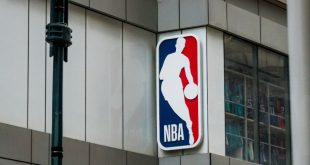Sports betting within the USA is an issue that has been long debated, and will continue to be done so until the culmination of the ongoing Christie v NCAA case, and most likely well beyond.
It was no surprise to see it debated in varying degrees at last weeks ICE London, with Dan Wallach, shareholder at Becker and Poliakoff, getting things underway by stating: “What a difference a year makes, over the last year we have had so many new developments in the sports betting landscape, finally we see light at the end of the tunnel.
“During the last year alone The United States Supreme Court granted certiorari in the Christie vs NCAA case, that was a major development as the Supreme Court historically takes less than 1% of all partitions, and averages between 25 and 35 cases per year.”
Before adding: “If this was a top 20 college football poll, New Jersey would have gotten every single first place vote, that’s how well it went for New Jersey.”
A sentiment echoed by William J Pascrell III, partner at Princeton Public Affairs Group, who outlined his beliefs on the case: “If we are not going to be successful I don’t know who would be.
“I believe that New Jersey is on the precipice of a historic moment in American history, and I think [the] court is going to do what many would believe a year of two ago would be unfathomable.”
Whilst also giving a prediction as to when and where he believes the first will bet made within the state: “Jersey will be the first state outside of Nevada and Delaware to take a bet, and will take a bet, I believe, at Monmouth Park [racetrack] sometime late August, on [next] seasons NFL game, if we are right and the court rules in that direction”
Despite having a 0-7 win loss record at Federal Court level, the Supreme Court of the United States (SCOTUS), agreed to hear the case, as New Jersey bids to have the Professional and Amatuer Sports Protection Act (PASPA) declared unconstitutional.
With a wide belief of New Jersey coming out on top following oral arguments made towards the end of 2017, Wallach outlined potential scenarios that the nation could be facing: “I think we are looking at three possible scenarios, the first is that the Supreme Court will declare PASPA to be unconstitutional based upon federal law violating the tenth amendment, and by dictating to states how it regulates its own citizens without setting forth any regulatory or deregulatory scheme.
“On the opposite side of the spectrum the league could hold serve, and the Supreme Court could affirm the third circuit of the US court of appeals decision that held that PASPA preempts or trumps the New Jersey partial repeal law.
“If that result was to take root, the status quo would remain intact.
“The third option, is this notion of a statutory victory for New Jersey, in the sense that New Jersey’s partial repeal law, which means that New Jersey is trying to decriminalise sports betting and remove any or all prohibitions of state oversight from the activity at casinos and race tracks located within the state.
“And the New Jersey argument is, or had been, that a decriminalisation is not tantamount to an authorisation, and in order for PASPA to be violated the state needs to sanction the activity either by licensing it, authorising it, promoting it, advertising it or sponsoring it.
“And one argument would be the idea that decriminalisation, or the repeal prohibitions, does not rise to the level of a PASPA forbidden authorisation.
“Under that scenario the court would rule that the New Jersey law does not violate PASPA, and that PASPA is otherwise constitutionally valid.”
Adding: “If the part of the law New Jersey is challenging is stricken as unconstitutional, which is the prohibition against state authorisation, if you extract that from PASPA is there enough of the statute left in order to remain vital?”
Another area of debate is the roles of the varying sports leagues with the US, namely the NFL, NHL, NBA, MLB and NCAA, and the issue of the NBA and its request for a 1% integrity fee, coming out of the amount wagered where its games are concerned.
Sara Slane, Senior Vice President of Public Affairs at the American Gaming Association (AGA), spoke about her engagement with a number of stakeholders: “We don’t view ourselves as being an opponent to them at all, I would that honestly we probably agree on 90% of what it is we are trying to accomplish.
“Which is number one to shut down the illegal market, and promote the integrity of the games.
“We do disagree on the NBA, and that’s not all the leagues that’s just the NBA, that has really been outfront on this whole 1% integrity fee issue.
“Other than that we are going in the right direction in terms of having a regulated sports betting system in place, which hopefully that’s what the court will enable the states to do.”
Pascrell, however, heavily criticised the nations sports leagues, which he states are only interested in one thing: “One thing I want to take extreme exception to is that I find the leagues to be deplorable, hypocritical and the antithesis to what we are trying to accomplish.
“They are so full of bunk to try and put the integrity of the game out front as the root for their position on sports betting.
“It’s a bunch if garbage.
“What it is about is the almighty dollar, at the end of the day, and that’s what the leagues are trying to do, and that’s why they are strongly advocating for a federal model.
“Because if they have a federal model it’s a lot more business friendly, we get that, so now all of a sudden we are OK about sports betting, when from the inception of this issue they have been against it.
“I think the NFL has a lot of sole seacrhing to do, forget about the domestic violence and concussion issues etc, this is going to be something that is going to give more power to the players in the leagues.
“And that is why I wanted to take exception to that, because I don’t find them to be on point with us on anything.”
With Slane concluding: “At the end of the day it is not going to happen without the leagues, and that’s been the difference quite frankly about how this issue has moved forward in a productive fashion.
“We are not all going to agree on the same things, you can call them hypocritical, but at the end of the day we have to work in partnership and we do want to shut down the illegal market.
“And the only way we are going to be able to do that is to work together.”
These issues were spoken about at the Sports Betting USA track at ICE VOX, on the panel entitled ‘SCOTUS Outlook and Scenarios – Will the Federal Ban be overruled, compromised or upheld?’









